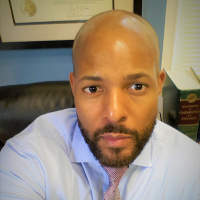Bowdon Junction Misdemeanor Lawyer, Georgia
Sponsored Law Firm
-
 x
x

Click For More Info:
-
The McReynolds Law Firm, PC
3799 Main Street #87012 College Park, GA 30337» view mapCriminal Defense Defending Your Rights
Let The McReynolds Law Firm, PC handle all your criminal defense needs.
800-919-4121
Quinn Johnson
✓ VERIFIEDCriminal, Felony, Misdemeanor, Traffic, Juvenile Law
Quinn Johnson is the principle of The QUINN JOHNSON LAW FIRM, P.C. Our firm has earned a reputation of getting results on behalf of our clients thr... (more)
Cynthia Matthews Daley
Lawsuit & Dispute, Family Law, Misdemeanor, Accident & Injury
Status: In Good Standing
FREE CONSULTATION
CONTACTCourtney Marie Smith
Car Accident, Misdemeanor, Personal Injury
Status: In Good Standing Licensed: 8 Years
R. Keith Prater
Divorce & Family Law, Accident & Injury, DUI-DWI, Misdemeanor
Status: In Good Standing
Brian D Hardison
Federal Trial Practice, Misdemeanor, Felony, DUI-DWI, Criminal
Status: In Good Standing Licensed: 32 Years
Cathy Rae Nash
Landlord-Tenant, Traffic, Entertainment, Misdemeanor
Status: In Good Standing Licensed: 36 Years
 Jule McReynolds College Park, GA
Jule McReynolds College Park, GA AboutThe McReynolds Law Firm, PC
AboutThe McReynolds Law Firm, PC

